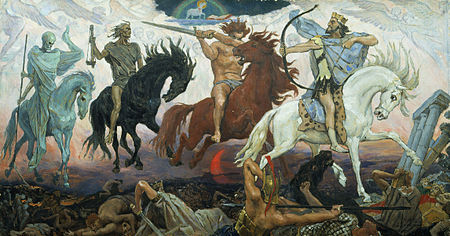http://online.wsj.com/article/SB10001424053111903999904576466411161774824.html?mod=WSJ_Opinion_LEADTop
are making a mistake if we don't continue to support the development of the James Webb Space Telescope.
I have been interested in astronomy since Halley's comet came here around 1986. I knew I wanted to see it--it only comes by once every 76 years, and there is something magical about that-- and it wasn't going to be "spectacular" so I had to learn something about astronomy to "find" it. So I started reading, and reading, and
 the more I read, the "interestinger" it became. I actually flew down to the Kennedy Space Center to watch the launch of the Hubble, and when Congress canceled the Super Collider project in 1993, I was disappointed. Now, we have canceled the Space Shuttle, and there is a question of canceling this incredible project, the James Webb Space Telescope, that will have the capability of vastly increasing our knowledge of the Beginning of time.
the more I read, the "interestinger" it became. I actually flew down to the Kennedy Space Center to watch the launch of the Hubble, and when Congress canceled the Super Collider project in 1993, I was disappointed. Now, we have canceled the Space Shuttle, and there is a question of canceling this incredible project, the James Webb Space Telescope, that will have the capability of vastly increasing our knowledge of the Beginning of time.Apparently, this telescope will open research into questions of the period of "first light": that time when first stars and galaxies firmed in our universe. It will give us the information necessary to pry into questions of the origins of black holes, dark matter, and the basic ideas of matter in our universe-- the fundamental questions we are here to probe.
I understand that we have many expenses now: Medicare, Social Security, defense, Medicaid, and numerous other Great Society programs that are draining our resources,
but mankind also has other priorities that seem, to me, to exist in a separate "universe" of priorities.
When I was in high school, Paul Levin's slogan as he ran for Student Council President (and he won) was "aim high." That was a good slogan then, and it fits this situation now. Mankind exists for some reason, and if anything matters, it is our continued journey into the question of WHY. Exploration of space is, I believe, one of our higher callings in this regard. It gives us as a people, a fundamental raison d'etre that makes perfect sense. When we abandon this quest, we denigrate ourselves as a people.
I hate to say it, but there will always be famine, and poverty, and war, and sickness. We can continue to drain our treasury for continued, sometimes appropriate efforts to stifle these Four Horsemen of the Apocalypse, but there must be some awareness of other priorities. Science, in the long run may have a significant influence on mitigating these "horsemen" if we continue down this road of discovery.
How many youngsters were inspired to enter engineering, or science because of the Shuttle programs, or photos from the Hubble Space Telescope? Where will all those inquiring minds end up? Will they be the people to discover new agricultural techniques to feed the starving, or irrigate the barren drought ridden lands of Africa, or maybe ever discover a cure for cancer? We must continue to develop programs in science and discovery that encourage those minds to devote their intellectual energies to our struggles with the questions and the problems of the human race. Telescopes and projects like the James Webb Space Telescope will open these doors to youngsters, and we must not close them now.
Mankind has many priorities, but I believe we must not sacrifice those priorities that keep our minds, and the dreams of our youngest citizens open to the unlimited possibilities of creative human energies. Space exploration is just one of those areas that accomplishes this goal. Literally, we must continue to "aim high."




But we need to cut "unnecessary" government spending, because big government is bad! What could be more useless that space travel! I am being facetious, of course, I share your opinion about space exploration.
ReplyDelete